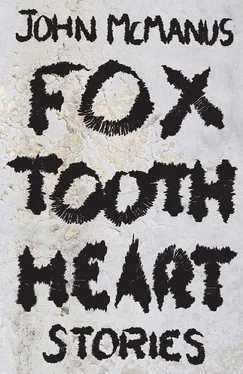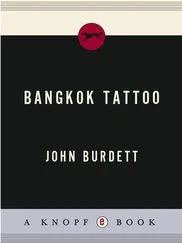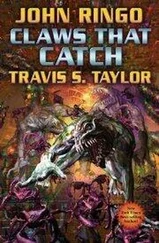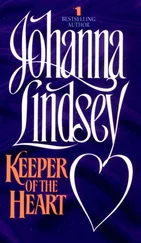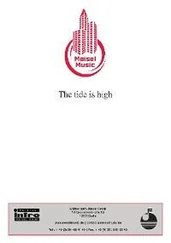John McManus - Fox Tooth Heart
Здесь есть возможность читать онлайн «John McManus - Fox Tooth Heart» весь текст электронной книги совершенно бесплатно (целиком полную версию без сокращений). В некоторых случаях можно слушать аудио, скачать через торрент в формате fb2 и присутствует краткое содержание. Жанр: Современная проза, на английском языке. Описание произведения, (предисловие) а так же отзывы посетителей доступны на портале библиотеки ЛибКат.
- Название:Fox Tooth Heart
- Автор:
- Жанр:
- Год:неизвестен
- ISBN:нет данных
- Рейтинг книги:3 / 5. Голосов: 1
-
Избранное:Добавить в избранное
- Отзывы:
-
Ваша оценка:
- 60
- 1
- 2
- 3
- 4
- 5
Fox Tooth Heart: краткое содержание, описание и аннотация
Предлагаем к чтению аннотацию, описание, краткое содержание или предисловие (зависит от того, что написал сам автор книги «Fox Tooth Heart»). Если вы не нашли необходимую информацию о книге — напишите в комментариях, мы постараемся отыскать её.
Fox Tooth Heart — читать онлайн бесплатно полную книгу (весь текст) целиком
Ниже представлен текст книги, разбитый по страницам. Система сохранения места последней прочитанной страницы, позволяет с удобством читать онлайн бесплатно книгу «Fox Tooth Heart», без необходимости каждый раз заново искать на чём Вы остановились. Поставьте закладку, и сможете в любой момент перейти на страницу, на которой закончили чтение.
Интервал:
Закладка:
“I saw you on TV just now and I’m—”
“Another one?” said his ostensible twin, without surprise.
“We’re identical. I can prove it.”
“No shit, moron. A musician recognizes the register of his own voice, even if you do sound like a hick.”
“What did you mean, ‘Another one?’”
“Do you love architecture and have a genius IQ?”
“Why; do you?”
“I asked you, shit-for-brains.”
“Have you been spying on me?”
“I’m sure we have cameras behind our eyes.”
Carl twisted the blinds shut, shuddering to think there could be film of his assault on Silas. “How’d you learn about me?”
“By answering the phone, numbskull. You’re the fourth to contact me. We’re all clones of Thomas Jefferson.”
In six keystrokes Carl had conjured an image of the man whose glinting eyes, high cheeks, and laconic smile could have belonged to an age-progressed image of himself. It seemed preposterous, and he knew that it must be true.
“Father of liberty,” added Heath, in case Carl hadn’t read that part of the encyclopedia.
“How’d you figure it out?”
“I’m a geneticist.”
“You’re twelve,” he said, even as he read that there’d been calls to exhume Jefferson and test his DNA for paternity of the Hemings children.
“At our age, the original Jefferson spoke Latin, Greek, and French.”
“Who else knows? Your folks?”
“Only the other four.”
“So they’re studying us from somewhere.”
“Didn’t I say so, dipshit?”
Carl was getting tired of being called stupid. Although he hadn’t injured Heath, or done anything in Heath’s presence to be ashamed of, he wished for the Tsar Bomba to detonate over Heath’s house.
“What did your folks do to you?”
“I guess you could say my folks loved me too much. But look, gotta go. Let’s talk tomorrow. There’ll be a Skype conference at noon.”
It was like Heath expected Carl to simply intuit how to find him online. And maybe, by virtue of his genes, Carl should be able to. If Heath was telling the truth, Carl should be able to command, to enslave, to speak with eloquence. Having cross-referenced the Jefferson page, he knew his abilities. He could foment revolutions. An orphan of radical inclinations, he recalled a quote from the man about refreshing liberty’s tree with the blood of patriots. Human blood, Jefferson had said, was liberty’s natural manure.
Carl relaxed into a sense of rightness. “Okay,” he said, “let’s talk then.”
“Well, that’s dumb of you,” said Heath, “since we haven’t even traded handles.”
To avoid notice as identical genius quadruplets, the clones had been using Heath’s blog as a private social network. “Try to catch up” was the last thing Heath said on the phone, and Carl spent an hour doing that, tracing his way through threads about language coaches, soccer camp, vacations abroad. Luc lived in Grosse Pointe, Talbot in Alexandria, Mason in Park Slope. Luc had had extra pages stapled into his passport. It grew tedious to read about the boys’ academic prowess, their overbearing fathers, the careers of their mothers. One mom was an Assistant Secretary of State, the others a producer, a renowned scholar, and a surgeon. Pondering what to tell them about the Bartons, Carl clenched up. It was wrong to feel ashamed of Marissa for being dead; still, however he felt about any subject, his clones stood a good chance of feeling the same. Astronomer, he practiced saying. Researched astrobiology. Lived in Biosphere 2.
He learned that Jefferson had loved botany and agriculture, philosophy and exploration, classical ratios, that his curiosity had been ardent about all subjects but geology. Carl had enjoyed learning about the Ozarks’ billion-year erosion. If I like geology, he thought, I’m an improvement on the original. To read the Virginia Statute for Religious Freedom gave him chills. It had gratified his shy, intense, soft-spoken, humble forebear to gaze beyond hills toward the vanishing point, as Carl did now in Branson, thinking, This is who I am. Perplexing though it was for the scientists to have given Carl to the Bartons, he thrilled to anticipate what was in store at noon. We’ll be farmed out to lead revolutions, he thought. No, they’ll put us through Harvard. We’ll be the founders of a Mars colony.
All night Carl read about the American Enlightenment. When the sun rose over Lake Taneycomo, he set his alarm for 11:30 and tried to sleep. Across the wall he could hear his sister quarreling with her boyfriend. The gist was that Sheila was a slutty whore and the boyfriend was done with her. “I love you,” she repeated as Carl imagined his sister alone, wrapping a Christmas present to herself after he abandoned her for his real family. Was he willing? What value to intelligence if it didn’t help his loved ones? Wasn’t it his job to make things better?
No, exhaustion was driving his mind to melodrama. The Bartons hadn’t bothered with Christmas in years.
When at last he slept, he dreamt his mother was a stock car driver with cancer, wired up to the transmission of her Chevrolet SS. She had to drive fast enough for the alkylating agents to be released. Her pedal was to the floor, but it wasn’t enough, and by the time the alarm sounded at 11:30 the cancer had spread to her brain.
He got up and ate cereal, reading the news. A Nobel laureate in economics had passed away. After he updated the man’s page with the date and cause of death, he clicked through the prior awardees, back to Frédéric Passy, French economist and first peace laureate. The man had been born in 1822, when Jefferson was seventy-nine. If Carl made note of the linkage, which existed only in the form of his thoughts, it would be deleted. To change Passy to Pussy, economist to dipshit , would get him exiled as a vandal. As if that mattered, he thought, feeling less and less like himself, until noon, when he clicked in to a video discussion in four little squares that each held his moving face.
“I’m Carl Barton,” he said, gulping down an impulse to run from this horror show of lookalikes with raised cheekbones, yellow-brown curls, and eyes of false beseeching kindness.
“No shit,” said the one with a cello propped up behind him. Heath.
“Say your name again,” said the boy in the lower right.
“Carl Barton,” said Carl.
They all hooted with delight. “Do they have electricity where you live?” drawled one, in mimicry of an accent Carl had never noticed in himself.
“I’m on a computer,” he said, to more laughter.
“Where’d you grow up, on a train?”
“We moved around for my mom’s job,” he said, uneasy. There was no parallel between the other boys’ mockery and the Jeffersonian qualities — politeness, curiosity, decorum — that he’d lain awake reading about.
“Did she drive a truck?”
“She studied the night sky.”
“In the Ozarks?”
“The Ozarks have night sky.”
“What did you score on the SAT?”
“I’m twelve.”
“So am I, but I faked an application to Harvard to see if I’d get in.”
“We have to attend different schools. Luc has dibs on Harvard, I’ve got Princeton, Talbot Yale, Mason Stanford.”
“So no one else knows?” Carl asked, but Heath was talking over him: “Hold your computer up and spin it around.”
“It’s a desktop computer.”
“Point it out your window. Is that the projects?”
“This is Branson. There’s no projects.”
“You know how science works; every experiment needs a control group and a white-trash welfare group. We hypothesized your existence weeks ago.”
Carl had always been different from the people around him, but not because of money. At his school most kids had been poor. He hadn’t felt ashamed. He tried laughing along with the others, and it seemed to work; the teasing bounced back toward Mason. Mason had been caught making his dog suck his cock; now he had to go see a psychiatrist. Talbot guessed they were all genetically inclined to do the same. If so, the clones must have wished for bombs to fall on their cities, too. Heath, Talbot, Mason, Luc, or anyone would have kicked Silas to death.
Читать дальшеИнтервал:
Закладка:
Похожие книги на «Fox Tooth Heart»
Представляем Вашему вниманию похожие книги на «Fox Tooth Heart» списком для выбора. Мы отобрали схожую по названию и смыслу литературу в надежде предоставить читателям больше вариантов отыскать новые, интересные, ещё непрочитанные произведения.
Обсуждение, отзывы о книге «Fox Tooth Heart» и просто собственные мнения читателей. Оставьте ваши комментарии, напишите, что Вы думаете о произведении, его смысле или главных героях. Укажите что конкретно понравилось, а что нет, и почему Вы так считаете.
